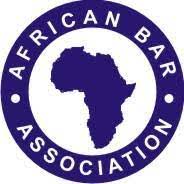Young Lawyers (Digital Natives) Committee

Emeka Arinze Esq.
Chairman
As legal work shifts almost entirely to the digital space, skills in digital evidence, eDiscovery and technology issues affecting legal delivery have become an essential part of today’s litigation process.
No wonder the American Bar Association revised its Comment 8 to Rule 1.1, Model Rules of Professional Conduct 1.1. to read as follows: (emphasis added)
To maintain the requisite knowledge and skill, a lawyer should keep abreast of changes in the law and its practice, including the benefits and risks associated with relevant technology, engage in continuing study and education and comply with all continuing legal education requirements to which the lawyer is subject.
As a result, legal skills need adapting and new skills must be learned. To achieve this change, the digital natives – the early bar comfortable in a digital world, can optimise their processes, and adopt legal project management tools and process engineering to deliver a high-quality, stable output.
They need deep knowledge in a domain of expertise, but with the bar of the T made up of those skills including mastery of evidence in the digital domain, eDiscovery fundamentals, Digital forensics, use of technology in office management, data analytics, communications and electronic exhibit presentation in court, etc.
About the Committee
It is worthy of note to mention that it is no surprise that knowledge of evidence in the digital domain and e-Discovery has become a highly valued skill set by law firms, corporations and legal service providers. Now is the time for our early bar to uniformly learn about eDiscovery to uncover critical evidence and protect their clients’ litigation needs in the 21st century litigation.
It is against this background that the committee on young lawyers Provides the African early bar with advanced knowledge and practical skills in the field of law, forensics and digital technologies from an international, comparative and interdisciplinary point of view through exposure to cutting-edge issues and debates which traverse law, forensics policy-making, and technological issues through a series of: Conferences; Workshops; Seminars; Courses; Class Discussions and guest interactions.
Focus:
-
Evidence in the digital domain
-
eDiscovery
-
Technology in the law office automation and client Portal management
-
Law Library automaton
-
Electronic Exhibit management and presentation in court

